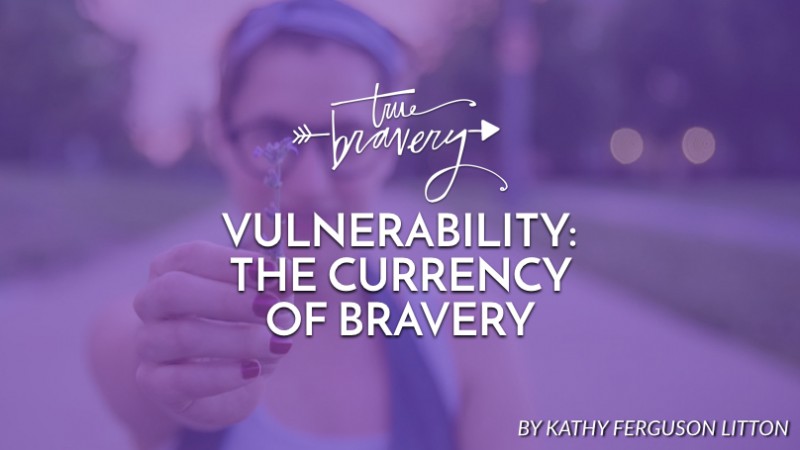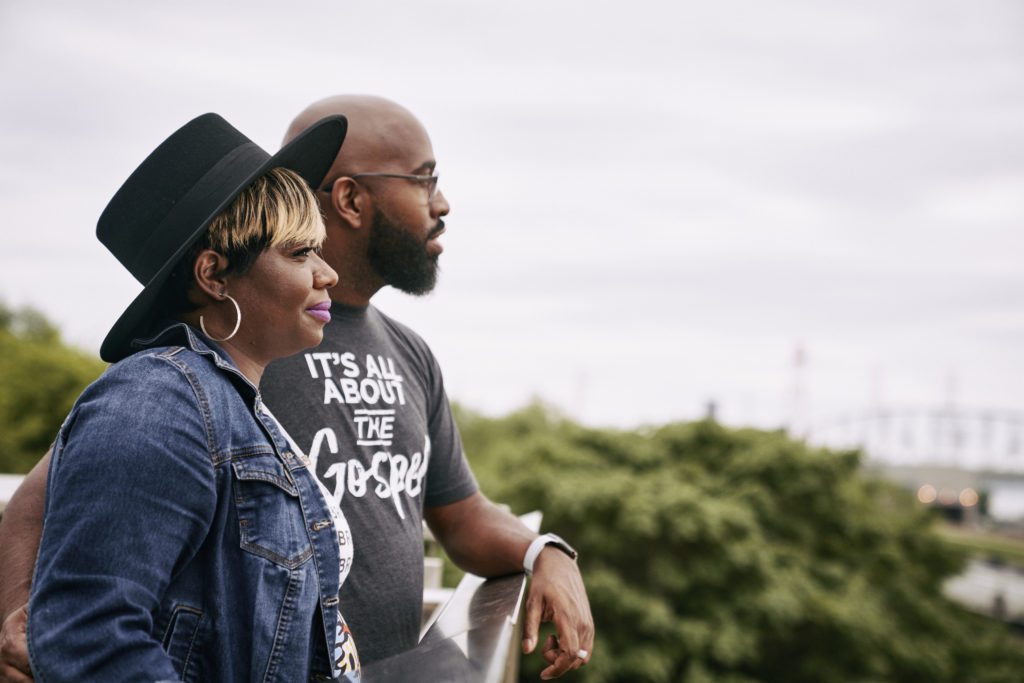As we conclude this series on True Bravery, we end with the ultimate factor that produces our willingness to be brave. If this feature isn’t present in us, we may never demonstrate courage, bravery or conviction.
What is it? Vulnerability. The word vulnerability is trending in most conversations about bravery. Yet we all have different versions of what this word means. The word literally means “able to be wounded,” which flies in the face of what must of us seek which is safety, comfort and protection.
My favorite definition of vulnerability is from Strong Women, Soft Hearts by Paula Rinehart. She says, “Vulnerability is to voluntarily place yourself in a situation that might bring pain for the sake of larger purpose.” It is a willingness to take risk for a greater good. Let’s take a deeper look at two things I think are key in her definition.
Vulnerability is not an end in itself.
True vulnerability’s goal is a “ larger purpose or greater good.” And for us as women of faith, the larger purpose is truth, the Ultimate Truth only found in Jesus and His Kingdom. Our vulnerability should point to this greater good: the glory of God and the power of the gospel.
In light of this, I offer some cautions. When any of us define the practice of “just saying what I think” as vulnerability, we are probably badly missing the mark. That TMI actually may have NO greater good at all. Your brash, bold stance that others may call “brave” may be more about you then the name of Jesus Christ. Reckless, bold gospel sharing that is absent of love, grace and genuine care in the name of bravery may wound the evangelism process and not move it along.
As believers, we have the opportunity to practice redemptive vulnerability when the gospel is put on display and not ourselves.
Vulnerability is a genuine risk.
We must actually risk personal pain or loss. Let’s be honest; we love guarantees far more than we love risks. We might be willing to incur pain if we were guaranteed gain, yet that is not vulnerability. We are willing to risk for greater good — the gospel, as stated above — not our immediate best personal interests.
Let’s look at the idea through the lens of James 5:16: “Therefore, confess your sins to one another and pray for one another, so that you may be healed” (James 5:16 HCSB).
James teaches us that healing and freedom from sin comes as we expose that sin and begin to pray for one another. Yet we instinctively know that when we confess our sins to others, they may judge us, spread gossip or lose respect for us. We risk short-term reputation issues for the greater good of healing.
Is it any wonder that Satan desires for us to keep our sin in the dark and avoid the risk? He wants us in bondage. Satan also lurks around every moment of gospel sharing. As he dangles our need for approval with thoughts of “what will people think?” We fear the risk of reputation, acceptance and other’s approval. We hesitate in forgiving others as we look for a guarantee they will never hurt us again. Yet that is not the basis of our forgiveness. Obedience will most often be filled with risks. As will vulnerability.
Biblical Examples of Vulnerability
Where do we find vulnerability in scripture? We begin with a clear lesson of vulnerability in the example of Jesus.
We typically think of god-like figures as powerfully in control and completely exempt from any risk of pain. Yet Jesus allowed the indignities of being a baby, was mocked and hated by the world and then suffered physical pain while bearing the sins on the world on himself.
“For you know the grace of our Lord Jesus Christ, that though he was rich, yet for your sake he became poor, so that you by his poverty might become rich” (2 Cor. 8:9 ESV).
For our sake…He became poor — THIS is vulnerability. Jesus is our ultimate example.
“But he emptied himself, by taking the form of a servant, being born in the likeness of men. And being found in human form, he humbled himself by becoming obedient to the point of death, even death on a cross” (Phil. 2: 7-8 ESV).
Jesus was willing to suffer and He knew He would suffer. He laid down the privilege of deity for a greater good — bearing our sins on the cross.
We also see a willingness to be vulnerable in Paul.
“I am the least of the apostles, unworthy to be called an apostle, because I persecuted the church of God” (1 Corinthians 15:9).
In short, with Paul we say, “I will boast all the more gladly of my weaknesses, so that the power of Christ may rest upon me” (2 Corinthians 12:9).
This strong powerful iconic leader of the early church cried in front of people (Acts 20:37) and mentioned unanswered prayers (2 Corinthians 12: 8-9).
His example of vulnerability reminds of us of our shared human condition, yet it never ceases to remind us of the amazing supernatural provision of God. He demonstrated that life on mission is a risk, but it’s a risk worth taking (Acts 21:13).
Vulnerability is not an end in itself. Nor is bravery. True bravery is built and defined by redemptive vulnerability — the end is the salvation of souls for the glory of God.
Dear sisters, let our bravery be worthy of the gospel … nothing more or nothing less.
“Only let your manner of life be worthy of the gospel of Christ, so that whether I come and see you or am absent, I may hear of you that you are standing firm in one spirit, with one mind striving side by side for the faith of the gospel and not frightened in anything by your opponents” (Philippians 1:27-28).
How have you been challenged and/or encouraged from our bravery series? We’d love to know. Leave us a comment below to share your insights.
Published February 14, 2017



